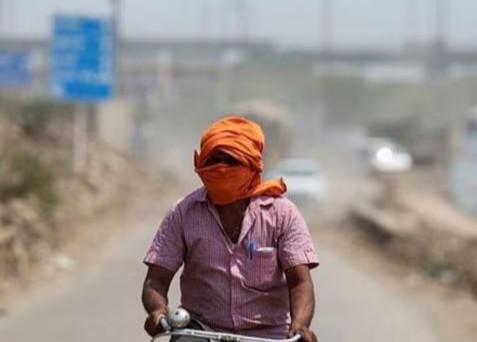
Extreme Heat Endangering Health & Productivity of Workers: Report
As the mercury continues to soar in many parts of the world, a recent report by the World Health Organisation (WHO) and the World Meteorological Organisation (WMO) has sounded a dire warning about the impact of extreme heat on workers’ health and productivity. According to the report, worker productivity drops by 2-3% for every degree above 20°C, making it a pressing concern for industries and economies worldwide.
The report highlights the vulnerability of certain populations, including manual workers in agriculture, construction, and other sectors, as well as children and the elderly in developing countries. These individuals are at a higher risk of heat-related illnesses, which can have severe and long-lasting consequences.
Heat-related illnesses are a growing concern globally, with temperatures rising due to climate change. According to the WHO, heatwaves are one of the most common natural disasters, affecting millions of people worldwide. In extreme cases, heat can lead to heatstroke, dehydration, and even kidney dysfunction.
The report emphasizes that workers in manual occupations, such as agriculture, construction, and manufacturing, are particularly susceptible to heat-related illnesses. These workers often toil in hot environments without adequate access to shade, water, and other essential resources. The prolonged exposure to heat can lead to heat exhaustion, heatstroke, and other heat-related illnesses.
In addition to the health risks, the report notes that heat-related illnesses can also have significant economic and productivity losses. Workers who fall ill due to heat are more likely to miss work, leading to decreased productivity and increased absenteeism. This can have a ripple effect on industries, economies, and communities, exacerbating existing challenges and vulnerabilities.
The report also highlights the need for urgent action to mitigate the effects of extreme heat on workers. This includes implementing heat stress prevention and mitigation measures, such as providing access to cool drinking water, promoting regular breaks, and ensuring that workers are adequately trained to recognize the signs of heat-related illnesses.
In a statement, the WHO emphasized the importance of addressing the issue of heat-related illnesses among workers. “Heat is a silent killer, and it’s essential that we take immediate action to protect workers from its deadly effects,” said Dr. Maria Neira, Director of the WHO’s Department of Public Health and Environment.
The WMO also stressed the need for a coordinated effort to address the issue of extreme heat. “Climate change is increasing the frequency and severity of heatwaves, making it crucial that we work together to develop effective strategies for mitigating their impacts on workers and communities,” said Dr. Petteri Taalas, Secretary-General of the WMO.
In conclusion, the report by the WHO and WMO serves as a stark reminder of the urgent need to address the issue of extreme heat and its impact on workers’ health and productivity. It is essential that industries, governments, and communities take immediate action to protect workers from the dangers of heat-related illnesses and ensure that they have access to the resources and support they need to stay safe and healthy.
Source:
https://repository.inshorts.com/articles/en/PTI/45d9bd2d-ff57-417c-9e5f-831344bb34b0






